Media
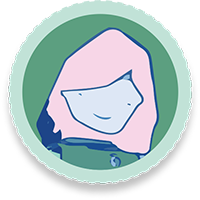






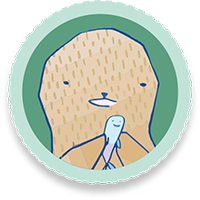






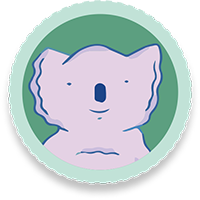






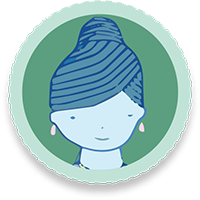













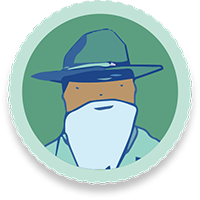






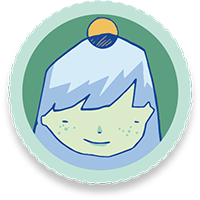















Below are some thoughts, experiences and advice other young people have shared with us about relationships with family and friends after treatment for cancer.

How have your relationships with friends and family changed?
“Relationships with friends have significantly improved, as I have been more able to attend dinners, catch-ups, play golf with my mates and watch them play cricket at our cricket club. My family relationships (mum and dad) have stayed constant throughout treatment and post, as I look to move out and feel the drift from them as I mature in life.”
“I held my parents much at arm’s length before and this has given them a chance to worm their way back into my life a little bit and I sort of resent that. I mean, I want there to be firm boundaries and I want to advocate for myself within my relationships but I don’t feel that my parents allow me to do that in our relationship. I feel like they want to help, but that they do so in ways that aren’t helpful for me and get defensive when I try to push back. My friends respected the boundaries that I set, and that was good. But my parents’ feelings of family trumps all made me feel like they did not respect me enough to listen to me when I told them what I needed after treatment.”
“Relationships within my immediate family (mum, dad, brother, cousin and uncle & aunty) have grown, we were close during treatment and then that became stronger afterwards too, I guess there is a sense of admiration for what I went through and I also admire them for their strength to standby and remain the same to me honestly. I guess it just reinforced that they cared for me a lot. I still live at home with my parents so there has been times where we have lost patience and snapped a bit but I believe that’s just because we have been in our back pocket for so long in a small space without alone time. Relationships with friends has also improved, I know the core group who were with me during treatment and they haven’t stopped their support. The whole experience has almost brought us closer than what we were before.”
“I’ve learned to be more open, honest and transparent [with] those around me. I speak up, I have the tough conversations, I re-evaluate my behaviour when someone pulls me up on my indiscretions and I try again. I don’t assume everyone knows what I’m feeling or I them.
Treatment taught me the importance of patience, space and empathy. There is no perfection or idyllic relationship but I have found the ones that change you […] are the kind ones. The ones who answer every call and tell you not to apologise. Who love you at your most demanding and emotionally laborious times and greet your moods with open arms – they are the ones to keep and keep working to be better at.”
“My family has gotten a lot closer than it was before diagnosis. For three months I had chemo (and was in hospital) for 5 days every three weeks. I lived 1-2hrs away from the hospital and my mum always stayed the 5 days I was having treatment. This put a lot of stress on my dad and siblings because the family dynamic changed. Dad had to take my siblings to school every morning, cook dinner, take them to different after school activities, training, sports on weekends, and help them with homework all while going to work himself. Sometimes they all came up to the hospital on a weeknight. We’d watch tv and order takeaway to the hospital. I liked those nights the best. It was nice to experience something ‘normal’. During the weeks I didn’t have treatment my family just tried to treat me how they usually did.
I found that with my friends, they didn’t really know how to act around me. We hadn’t heard of anyone our age with cancer, it was only old people and those little kids you see on fundraising advertisements.
I drifted away from a few friends. I guess they thought that because I was having chemo, I wasn’t allowed to go out and have fun, so they stopped inviting me. It was kinda hard watching all of my friends go back to uni while I was stuck in hospital, but I also kinda liked it because I knew I wasn’t missing many social activities because they were all too busy with homework.”
“My relationships with my family have definitely changed. I wouldn’t say strengthened as we were already extremely close, but we all talk more often and it’s really made me appreciate them being around more for sure. I have also seen sides of them I hadn’t previously seen. For example I never knew my sister was as perceptive as she is. During treatment she always knew what to ask the doctors and also always knew how to make all my visitors feel a bit more at ease somehow. Since treatment has ended I look at all of my family members slightly differently because of how I experienced them during and I am thankful for this.
My friendships have definitely been strengthened because of treatment! My chemo was quite intensive and I had 4 hour days for a week at a time, my friends would take in turns at joining me for this. Spending 4 hours sitting still, feeling the sickest I’ve ever felt, changed the dynamic of these relationships. Not being able to fake feeling okay meant silences became comfortable and there was a level of patience from both of us that wasn’t there before! My friends looked after me more than I knew was possible and that has changed our relationships for the better forever. I know I couldn’t have come out of this as well as I did without my friends and family.”
What surprised you?
“Nothing really, I expected my relationships would improve as I was more able to see my friends. My partner has been my rock throughout the whole thing so that has not changed pre, during or post-treatment.”
“Losing a friendship which was, admittedly, on its way out but their not really caring or offering any support really cemented that I didn’t want to keep that relationship.”
“I had plenty of support during the initial few months after my diagnosis, during chemo and post surgery. However, post active treatment and moving in to the monitoring stage is when I have needed the most support. I think this is difficult for most people to understand because life looks like it is returning to ‘normal’ – my hair is growing back (yay), I don’t look ‘sick,’ I’m back at work and exercising. I have definitely felt the support drawing away and I am surprised at just how much I was relying on it. I am now becoming more open with my supports and sharing with them what is happening and when I need help, but this is difficult for me.”
“I wouldn’t say my mates are ‘typical teenage blokes’; they’re upfront and honest and genuine guys. I recently found out [that] when I was in hospital and they found out, they were a mess- two of them lived together and didn’t really know how to deal with it. They openly confessed to not dealing at all and were terrified of what was to come. It has now opened up a discussion about our mental states and how we can support each other, a positive out of all this has been an opportunity to open up to one another.”
What advice do you have for others?
“Set firm boundaries with friends and family – and don’t feel ashamed that you have to do that to protect yourself.”
“Be upfront with friends, they won’t ever judge you for having a scar or not having hair or still being crook or not as fit as before. If they’re true friends and supportive family those factors shouldn’t be an issue. It’s easier said than done but in the long run it’s worth knowing who’s there for you and vice versa.”
“Everyone reacts differently to a cancer diagnosis. [People you don’t hear from], they’re most likely not ignoring you, cancer has probably affected their family in some way. A few of my friends didn’t speak to me until I got the news I was all clear, whereas others were extremely clingy and wanted to know every detail of my appointments. If you can, go out or invite some friends round to show that you’re [still] a teenager/young adult and you can still do ‘normal’ things.”
“Some relationships will become so much more than you hoped, some will fall by the wayside. You’ll experience grief and love and pathos and pain simultaneously, and then you’ll come to realise that everyone is doing the best they can. The anger you have towards those you thought would be there will fade to indifference. The ones you knew you were outgrowing will slowly soften and the ones you didn’t suspect could become so much more than they already were, become just that.”
“Coming to the end of treatment it took me a while to realise that I didn’t need looking after anymore. So some advice might be not to be offended or surprised when people stop offering to do everything for you, because they can see how okay you are maybe before you can.
Also to be patient with everyone, yourself and your relationships. I assumed because life was so mundane during treatment that afterwards my life and my interactions with everyone would immediately become so exciting all of a sudden, which it didn’t because everyone else has continued life almost normally while yours was so different. But I am remembering just to be thankful for normal life and doing normal, even boring things.”
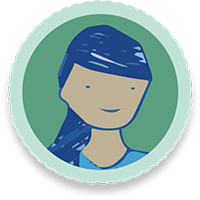





Intimacy is about so much more than sex- it’s about how we relate physically and emotionally to ourselves and those close to us. Whether you are sexually active or not, in a relationship or not, we hope that the experiences and advice shared by other young people below about body image, romantic relationships and intimacy after treatment for cancer help demonstrate that there is no right or wrong way to feel, or to be.

How has your relationship with yourself changed?
“It is in the process of becoming a lot more positive and almost worry free, beforehand I used to stress about the smallest things, now I am looking at the bigger picture and not sweating the small stuff as much and definitely enjoying socialising and getting out more. Beforehand I also was very selfish and that is changing, I have been made aware of flaws within me and I see this as an opportunity to work on those flaws.”
“It takes time to accept the ‘new’ you physically… but after treatment I am slowly regaining my prior fitness levels and seeing the old me come back SLOWLY.”
“I am so aware of my physical body now. I know when my calcium is low or if I’ve missed a dose of something because I can *feel* it. I’ve wanted improvement to my eating habits and my exercise habits, or lack thereof, for so long but I feel like this awareness of my body has driven me more than anything else has before.”
“As someone who has always struggled with body issues, it felt unbearable to have physically changed so much in such a short period of time. I spent too much time berating myself about how I looked during treatment, and even more so after. There are days where I still stand in the mirror and berate my body for everything that it isn’t rather than celebrating what it is. I still struggle with the shallowness of my own self-worth but I know it has evolved. I can now realise that if it wasn’t for this experience, I would still have an unhealthy relationship with my body.”
“Most of the time I appreciate my body for fighting this disease, and now carrying me through each day. However, sometimes I can feel angry that I no longer look the way I did; am no longer as physically strong as I once was and that sexual experiences aren’t the same. It is hard not to compare yourself to friends. I try to practice self love but sometimes this can be really hard.”
“Treatment finished 2 months ago and I don’t think I have yet fully come to understand how it changed my relationship with myself and my body yet. There was a long time after surgery and during treatment where I couldn’t have cared less how I looked as I just wanted to feel better. There was a long time too, where all I wanted was to look after my body (exercise, use skincare, heal my scars, stop being injected with poison). But I just had to wait. Now that treatment is over I have all the time to take care of my body, I just had to get through the part where I had no control and realise a time would come where I get it all back. I’ve come to realise how strong I actually am, mentally but also physically to get through what I did, and I really appreciate my body for enduring what it did so well.”
How have your intimate relationships or experiences been affected?
“I don’t feel that my relationship has changed, really. I still feel the same connection as I always have with my partner.”
“I feel emotionally closer with my partner; sexually we are further apart. Recovering from surgery, being thrust into early menopause and having a temporary ileostomy are all large contributing factors. We are starting to overcome this together, open communication with your partner is key. Individually, I am linking in with additional services in the area of sexual health- it took some time for my team to suggest this referral.”
“A timely question, my long term girlfriend broke up with me after treatment. As far as I am aware it was not because of the cancer. There were other factors. However I was not feeling confident within my own body after my final surgery and was self-conscious and had close to no confidence. That has meant I have not had sex since. I am also not wanting to as I don’t particularly like anyone and honestly there is a part of me that is worried of being judged. The challenges are gaining confidence within myself in terms of my body and in terms of who I am as a person and my ethics and values. I guess I have blurred my mistakes into my cancer experience and see it as a chance to start again.”
“My relationship with my partner changed a lot. By default he became basically my primary caretaker during this time. A role he assumed without any question or even much discussion, I think he felt he didn’t have a choice, and not in a way in which he was forced but more that he couldn’t imagine it any other way, which on its own, I am incredibly grateful for. Since treatment it feels like both of us have become so much more thankful for each other, at least I know that’s true for me. Now that we can properly enjoy life again and do what we want, it feels all the more special. He is my hero now and I will never forget what he did for me and what he sacrificed to get me through this time, so that is a huge change in our relationship from my end.”
“I definitely seek more validation and comfort from people than I used to. I don’t know if it’s because I’m scared or scared to be alone but there is a loneliness that has stayed for me. Perhaps the restlessness has always been there, perhaps the two years in remission has felt ordinary and I uninspiring for not doing something more than being 24. But as my friends remind me: that is my job. To be 24, to make mistakes, sleep with the wrong people, fall in love with the worst ones, be selfish, have fun and to make the most of the now because the present is never to be repeated- we must live in it. I’m trying to be more patient and understanding with myself since this all happened. It’s not easy but even on the worst days, there is always some goodness and that’s what I’ve learned to hold onto.”
“My intimate relationship changed massively during treatment and then again afterwards. I read lots of stuff telling me how my intimate and sexual life would might change but I kind of dismissed this information before I realised how relevant it was. Feeling as sick as I did, I didn’t want to have much of a sex life at all. I didn’t really like how I looked and definitely didn’t feel good, so the thought of either me or my partner touching me was so far from what I wanted. During my break weeks from chemo my boyfriend and I had sex maybe once, but I think it was less because we wanted to and more because we thought we needed to try.
Emotionally though, my relationship with my boyfriend was the most nurturing it’s ever been, and that more than made up for a lack of connection physically during this period. I think it was good for us to put things like cuddling and just holding hands on as high a pedestal as we normally would sex. These things were instrumental in our intimacy during chemo. It was also challenging to accept that if there ever did become a moment where I felt well enough to have sex it didn’t mean my partner was ready, nor that my body would be. Also that if both of those things aligned, accepting that sex had to be different was huge too. It had to be a lot more calculated and controlled. We had to get lube (as the drugs affected my natural lubricant) which we had to talk about during sex, and my energy levels were so affected as well, every aspect of the experience had to be talked through, which took a few goes for me to come to terms with. Since we have started returning to a normal sex life I still hold things like cuddling and holding hands in a higher regard than I did before, which is super nice. Also just talking about being excited for a time when we could return to having sex was important. It reminded both of us that we did still want each other, and helped me picture the returning to of normal life.”
What surprised you?
“[That] I feel ok with my scar (26cm vertically across my abdomen). When I am being critical about myself it is never about my scar.”
”I was surprised at how quickly and dramatically my body changed when not doing any physical activity. And how mentally affected I was by my physical changes.”
“How accepting my partner has been throughout the whole thing, but then again it doesn’t surprise me.”
“How you can listen to your body and how quickly it can improve with hard work and determination, the hard bit for me has been listening to my body and knowing when it wants a break. I’ve also been surprised that there are people out there that will judge you on the way you look. Then there are people who look up to you and seek strength from you.”
“My recklessness. I’ve always been one to throw caution to the wind when it comes to sex though before, I was scared whenever I did so- now I’m not.”
“I got my period after radio treatment which is NOT FUN. I have implanon and getting my period was completely unexpected and no one even told me that it might affect me in that way- even though we did have a discussion about when my last period was and what birth control I was using. I was not prepared at all for it. It makes total sense because my hormones are being affected by the way my body has changed but I just wish I’d had more warning.”
“I was surprised by how much my sex drive was actually affected. And also how I didn’t feel much sadness about missing my sexual relationship during this time, as I knew it would return (thanks mostly to my partner being so encouraging).”
What advice do you have for others?
“It isn’t always easy, but be kind to yourself.”
“Be proud of your scars both on the outside and in (I’m still trying to be proud of the inwards ones) [because] they represent the fact you’ve gone through an ordeal and made it through the other end. Also no doubt your body will go through changes if you have surgery. Use it as an opportunity to start fresh and become stronger than you were before. It’s not permanent, and if people judge you or stare at you they really aren’t worth your time, they should be admiring your strength and resilience instead of the fact you don’t have hair or [are] not as muscly as others.”
“My advice would be celebrate the little things! While everything starts to become normal all at the same time, don’t forget how hard some stuff was during treatment. Patting yourself on the back when you can do small things like get through a meal without thinking about how hard it is, returning to normal bowel functions, going up that set of stairs without getting puffed, things like this are all absolutely worth quietly celebrating with yourself. Also patience patience patience. There’s no telling how long it will take your body to start looking and behaving normally. Same goes for sex life and relationships. Don’t worry yourself if things seem not to be going back to how they were, chances are they will, it will just take some time.”
“As hard as it is (and I probably didn’t have the guts to ask my oncologist), ask to talk to a nurse about sexual health and advice on the matter. I felt more comfortable talking to [my nurse] than one of the doctors on the matter.”
“You can never go back to the person you once were. All that’s left to do it figure how who the person you are now. Take your time, even if taking it seems unbearable. When you reach the point where you’re ready to dip your toes [back] in the sexual pool- dive. Experiment and play and ask for what you want. Sex is the only thing that’s free from distraction- it requires presence and touch and pleasure- why deny yourself any of it?”






The impacts of cancer treatment on fertility (if any) are unique for everyone. Even if you don’t plan to have children, knowing your fertility status can be helpful when it comes to sexual health and other aspects of your wellbeing. If you have questions or concerns about your fertility, speak to your GP, a member of your treating team or another health professional you know and trust.
Below are some thoughts, experiences and advice other young people have shared with us about fertility after treatment for cancer.

How do you feel about your fertility?
“I will not know for 12 months post-treatment whether I am fertile or not… so I don’t see the need to worry or fret about it.”
“I don’t intend to have children, this has not changed, so it has not been a concern for me.”
“My chances of having children is quite low now, however before my experience I never saw myself having kids anyway. I was asked if I wanted to sperm bank; however, I was quite sick and didn’t really see the point. I guess my values don’t see myself having kids either so overall I wasn’t affected by that.”
“My debulking surgery including a full hysterectomy and oophorectomy, meaning I am unable to have children of my own. During my surgery there was someone ready to take any tissue from my ovaries to be used via surrogacy, but unfortunately this was not possible. I am only 25 and was talking about having a family with my long term partner in the next few years. I am still grieving this loss, and feel like I always will be, however we are looking at other options and are determined to still have a family in some form.”
“I’m indifferent to my fertility. I only have one ovary left and I was put into early menopause during treatment. I started chemo 3 weeks after I was diagnosed and had surgery, so I had no time to do an egg collection. I finished treatment six months ago but I still haven’t had my period. I’m not really worried about it though, and I am booked in to see my fertility specialist next month.”
“It’s not lost on me that I happened to be cast on the side of good fortune when time allowed me to freeze my eggs, but I don’t always think about it. I wasn’t concerned about what may happen in the future when the question of my fertility was on the frontline. I felt this strange over-confidence towards the whole process; that this was something I was doing for someday but today wasn’t the time to concern myself with it. Maybe the magnitude of having to grapple with such a decision hasn’t hit me, or maybe because I was moved from doctor to nurse to gynaecologist and psychologist within a manner of hours meant I was constantly feeding questions about how I felt rather than sitting with the feeling itself.
Whether I need them (the eggs) or not, whether they’ll work or stop, was and still is a pain I don’t choose to reckon with. Despite knowing I want to be a mother, time is outside of my control. Whether that comes naturally, from a test tube or by signing papers at a border, if I find myself on the side of good fortune again, I’ll dive in and if life pulls another punch and I am unable to have a child, like all pain and grief, I’ll learn to not survive it, but endure it.
I’m fully aware that the feelings scattered in-between these words aren’t as easily reassured by a poignant prose but maybe, hopefully, by reading them we can both acknowledge that some things are out of control, in fact, everything is and however long it takes to sit more lightly with this great big grey area sprung by cancer, let it be.”
What worries or concerns do you have?
“Whether the treatment has rendered me infertile AND if my ONE sample is enough to have children.”
“No real issues; if I do change my mind in the future on having kids there are so many options these days.”
“Part of my grief is feeling like things aren’t fair, why some people are able to have children and I can’t- this can easily turn into a negative spiral. I am processing my feelings and feel in control, but I am worried that one day I might spiral so far I won’t be able to pull myself out. It is a very dark place.”
What advice do you have for others?
“If you have time, educate yourself about the different forms of fertility preservation, whether that’s freezing eggs or some of your ovary, or being put into a temporary menopause. You may not even be thinking about having kids now, but it’s better to have some options, rather than none.”
“If you are wanting children it is pushing to store your sperm or eggs, if you have the strength and will for it. But that doesn’t mean the end of world if you can’t. There is always adoption, or having someone else help out. I know that it’s not the norm but either is going through cancer.”
“The earlier the conversations about fertility are happening the better. If your treatment has left you unable to have a family ‘traditionally,’ take the time to grieve but also remember that grief is not a linear timeline.”
“Get all the right advice before treatment [if you can]. Then don’t worry about what you can’t control.”
